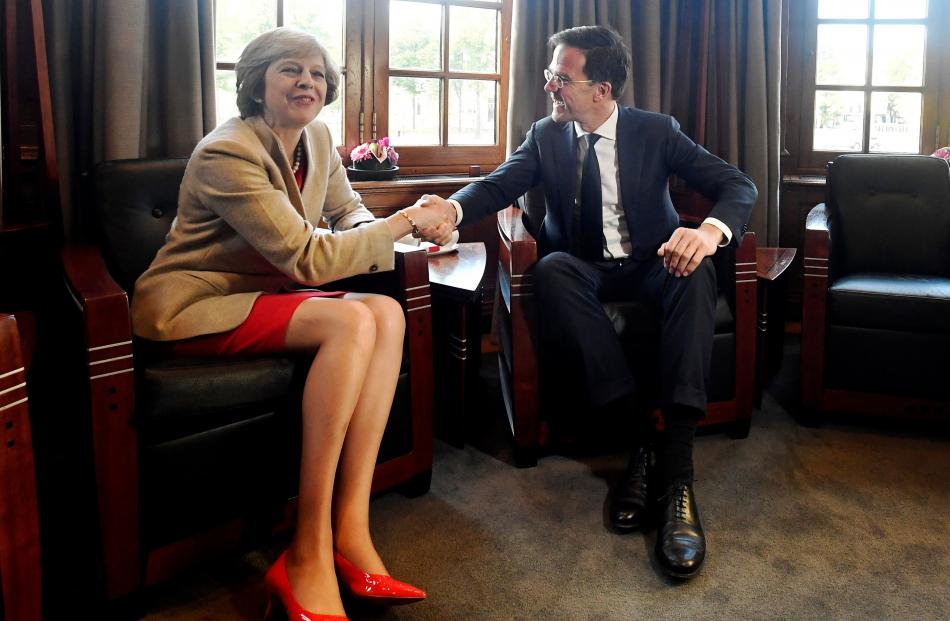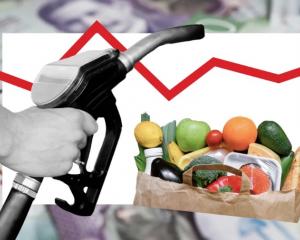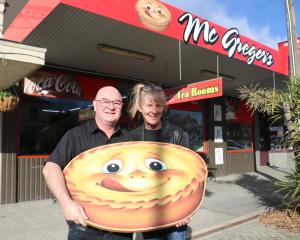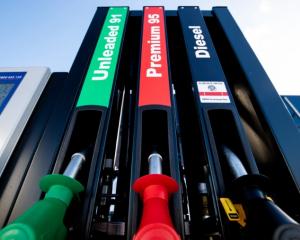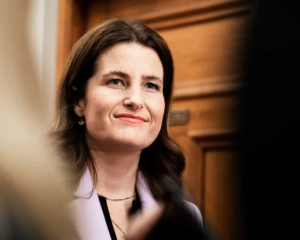The United Kingdom's contentious exit from the European Union will be a drawn-out affair, but according to the British High Commissioner in New Zealand, it will be a well-thought-out affair.
Since the headline-grabbing shock of the June 23 referendum to leave the EU, there have been gloomy expectations of a UK recession, exodus of ''City'' financial institutions, the UK's prickly immigration situation and potential for a split in the kingdom.
However, British High Commissioner Jonathan Sinclair (45) outlined plenty of resilience and strength in the UK economy, the Brexit process in motion, pending legislative change and how the brokering of new trade deals will play out.
''It's going to take a lot of time to get this right. We've got to be sensible.
''There's no sense in making this bitter and nasty; calm voices and cool heads must prevail,'' he said.
Mr Sinclair was in Dunedin yesterday as part of a nationwide road trip to update organisations about the Brexit plans, and where the opportunities lie for both New Zealand and the UK.
''Three months on from the referendum, what's been encouraging is a financial and political turnaround, with a strong new prime minister [in Theresa May]. Even the FTSE is above where it was in June,'' Mr Sinclair said.
Asked if Scotland, Northern Ireland or Wales could derail a dignified and prosperous Brexit, Mr Sinclair highlighted that Mrs May was in Scotland, talking with its Parliament, within 48 hours of the referendum results.
''She [Mrs May] wants all of them - Scotland, Wales and Northern Ireland - to be fully engaged with the process,'' he said.
Before any actual Brexit, the UK must enact Article 50 of the EU treaty, which means it could take two years or more before the UK formally quits its EU ties, trade deals and obligations.
In recent weeks, British officials and diplomats have been sounding out European opposites, to get a signal on what type of deal the EU would be willing to accept.
For Mr Sinclair, developments during the past 10 days have given more clarity on the process.
Mrs May had said Article 50 would be enacted before the end of March next year and was bringing forward legislative changes to repeal the 1972 European Communities Bill.
''All the EU law will become UK law, but Parliament will change what it does and doesn't want,'' Mr Sinclair said.
He emphasised the UK would remain a ''full member'' of the EU until it departed during the next two years, retaining both its obligations and rights during that period.
He hoped Brexit negotiations would begin early next year and while expecting the next ''two to three years'' to be challenging and ''bumpy'' for the UK, in three to five years' time he expected the economy to be ''going strong''.
When asked who the UK could expect to make up its five top trading partners within four years, Mr Sinclair said it was too early to speculate, given trade talks, let alone any agreements, were at such early stages.
Despite intense media speculation of a UK recession and exodus of financial institutions, Mr Sinclair was upbeat about the UK economy, saying the banks and financial institutions had since re-evaluated their positions and were staying.
He said 2.5million private sector jobs had been created in the UK since 2010, more than the rest of the EU together, and there remained ''a lot of strength in the economy''.
He cited the UK's tourism sector, manufacturing, multiple car makers in residence, major infrastructure and rail spending, service industry, new technology, retail and fashion, gaming, the aeronautical sector and high-tech clusters.
While the UK's growth was the fastest of the G7 countries at present, Mr Sinclair expected it to slow in 2017 ''but not to the point of recession''.
''We want to build broader webs of free-trade agreements. Once out of the EU there will be more opportunities for us,'' Mr Sinclair said.
He emphasised New Zealand within that process, saying he expected ministerial trade missions between the two countries to more than double.
The UK was New Zealand's fifth-largest two-way (import/export) trading partner and of all our exports to the EU, the UK alone took 36%; more than the combined imports of Germany, France and Italy.
He said one of New Zealand's strongest advocates within the EU was the UK, plus there were not only export opportunities, but access to the UK for expanding New Zealand businesses.
There remained a five-year ''ancestry visa'' and two-year work visa, albeit with only a one-year work component, and more New Zealanders were getting visas than people from Canada, China or Japan, he said.
On a per-capita basis 1 in 650 New Zealanders got UK visas, compared with 1 in 1300 Australians.
''Our best friends and allies have the best deals,'' he said.
Mr Sinclair acknowledged the UK's own immigration situation was a part-driver of the referendum. About 350,000 immigrants had arrived during the past year.
He noted the UK was similar in size to New Zealand, but with a population swollen beyond 65million people.
''There's no imminent [immigration] changes, but any government has to take action,'' Mr Sinclair said of the mounting stresses on education, housing and social welfare.
While it is not surprising the UK wants to encourage trade with New Zealand, it was surprising to have Mr Sinclair talk of gaining an insight into New Zealand's trade affairs.
''There's been a ratcheting up of interaction and trade between New Zealand and the UK. We want to know how trade strategies have been conducted, which New Zealand has done well for the past 25 years,'' he said.
Many still remember the plunge in exports to the UK from New Zealand after Britain joined the EU's predecessor, the European Economic Community, in 1973, and the feeling New Zealand had been ditched by an ungrateful UK.
Mr Sinclair acknowledged there had been those sentiments at the time, but he is only rarely taken to task over the more than 40-year-old issue.
''New Zealand became its own prosperous nation, with confidence, assurance and maturity,'' he said.
He highlighted that many countries of the OECD had faced wide-ranging economic changes and reforms during during the 1980s and 1990s.
''Both countries [UK and New Zealand] have changed immeasurably and are doing very well,'' he said.
He did not agree that the UK was now being isolated ''at the top of the North Atlantic'', as New Zealand was considered by many to be geographically far away ''at the bottom of the South Pacific''.
''No, but we are looking to emulate New Zealand's [trade] connectivity,'' Mr Sinclair said.
His four ''key'' components for the near future were how the UK left the EU, its arrangements with the EU, updating its World Trade Organisation membership and its free-trade agreements with the wider European Union.
He said there was generally a ''major treaty'' struck every five years within the EU, and while headlines touted ''Government screwed up'' or ''Government triumphed'', a middle road was always found.
''Complex ? Yes. But we'll get a deal for the UK,'' Mr Sinclair said.
He said the UK would remain ''outward looking'' economically, citing also its ongoing roles in the Commonwealth, UN Security Council, membership in G7 and G20 countries and the OECD.
For most New Zealanders the Brexit news component will remain the scrutiny of the UK's management of the process, and its progress, or not, during the next two years.
However, it appears the behind-the-scenes trade talks during the next two years will really determine whether the UK can successfully emerge from EU membership, without faltering economically.


